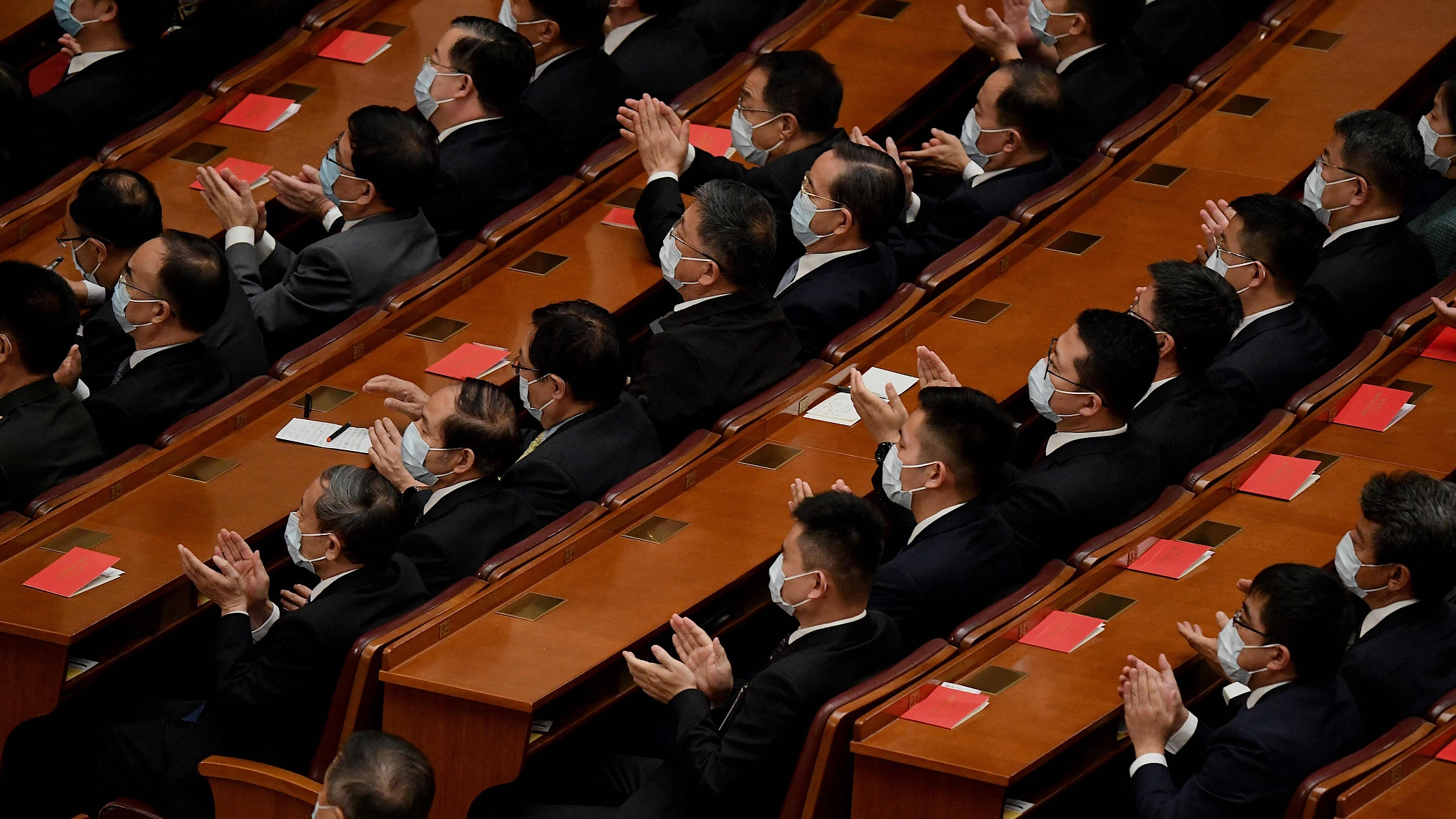
Delegates applaud during the commemoration of the 110th anniversary of the Xinhai Revolution which overthrew the Qing Dynasty and led to the founding of the Republic of China, at the Great Hall of the People in Beijing, October 9, 2021. /CFP
Delegates applaud during the commemoration of the 110th anniversary of the Xinhai Revolution which overthrew the Qing Dynasty and led to the founding of the Republic of China, at the Great Hall of the People in Beijing, October 9, 2021. /CFP
Editor's note: Yuan Sha is an assistant research fellow in the department of American studies at the China Institute of International Studies. A former Fulbright scholar at Columbia University, she has a PhD in International Politics from China Foreign Affairs University. Yuan has published several papers on China-U.S. security relations in Chinese academic journals and regularly contributes to many Chinese media outlets. The article reflects the author's opinions and not necessarily the views of CGTN.
This year marks not only the centenary of the Communist Party of China, but also the 110th anniversary of the Chinese Revolution of 1911, better known as the Xinhai Revolution. In a grand ceremony at the Great Hall of the People on October 9, Chinese President Xi Jinping delivered remarks to commemorate this historic event and appealed to the goal of national reunification.
Xinhai Revolution as a milestone
President Xi paid tribute to the glorious achievement by the revolutionary pioneers and ascribed the Xinhai Revolution as "a towering milestone of the great rejuvenation of the Chinese nation."
The Xinhai Revolution was the first democratic revolution in Chinese history, with profound implications on the Chinese nation. It overthrew the Qing Dynasty and ended absolute monarchy that ruled China for thousands of years, and paved the way for the modern China by establishing the Republic of China, the first republic in Asia.
More importantly, it ushered in an Enlightenment movement across China where the national consciousness was awakened and the ideal of democracy and republicanism took hold in Chinese people's minds. Epitomized in the "three people's principles" put forward by pioneer of China's democratic revolution Sun Yat-sen, which include the principles of nation, democracy and the people's livelihood, the ideals of the Xinhai Revolution inspire the Chinese people to this day.
Xi acknowledged the significance of the Xinhai Revolution, and remained clear-eyed to its shortcomings. As later history showed, great as it was, the Xinhai Revolution failed to end the Chinese semi-colonial and semi-feudal status and did not lift the Chinese people out of poverty and misery.
Drawing on the lessons of the Xinhai Revolution, President Xi made it clear that the strong leadership of the Chinese Communist Party and the path of Socialism with Chinese Characteristics together with the collective struggle of the Chinese people are the pillars of China. He also appealed to strengthen the consciousness of "a community for the Chinese nation" and unite the best and brightest Chinese for the great rejuvenation of the Chinese nation.

A view of Kaohsiung, China's Taiwan. /VCG
A view of Kaohsiung, China's Taiwan. /VCG
His remarks were borne out by history. It was the advent of the Communist Party of China and the founding of the People's Republic of China in 1949 that effectively ended the 100 years of humiliation. China has shed the old shackles, and re-emerged as an independent, prosperous and proud nation.
National reunification as the common aspiration of the Chinese nation
President Xi's remarks on national reunification were widely anticipated as the tensions across the Taiwan Straits have heightened recently. By quoting Sun Yat-sen's statement that "unification is the common aspiration of the Chinese nation. Unified, the Chinese people will prosper; otherwise, we will suffer as a result," Xi pledged to fulfill the unfinished cause of national reunification and realize the great rejuvenation of the Chinese nation.
Xi expressed confidence as he addressed the root cause of the Taiwan issue, "the Taiwan issue was a result of national weakness, and will definitely be resolved following national rejuvenation." He declared, "achieving the national reunification by peaceful means is in the common interest of the Chinese nation, including the compatriots of Taiwan." For this purpose, he pledged to adhere to the basic principles of peaceful reunification and one-country two-systems, as well as the one-China policy and the "1992 consensus."
The Chinese president issued stern warnings to the secessionist forces, "those who forget their ancestry, betray their motherland and divide the country never end well, and will be spurned by the people and judged by history."
He also reiterated that the Taiwan issue is China's internal affair and outside intervention would never be allowed. He is obviously making a veiled rebuke to the U.S. and other countries which are attempting to instigate Taiwan secession. In a latest revelation, the U.S. has secretly deployed its troops in Taiwan for at least a year.
But recent events also showed signs of easing. U.S. President Joe Biden and National Security Advisor Jake Sullivan both reiterated the U.S. commitment to the one-China policy. It demonstrates that the U.S. knows well the sensitivity of the Taiwan issue and finds it imperative to responsibly manage relations with China and refrain from provoking the Chinese people.
After all, national sovereignty and territorial integrity is of high importance to any country in the world. With firm determination and strong will, Chinese people would ensure that the "historical task of complete national reunification must be fulfilled and will definitely be fulfilled."
(If you want to contribute and have specific expertise, please contact us at opinions@cgtn.com.)

